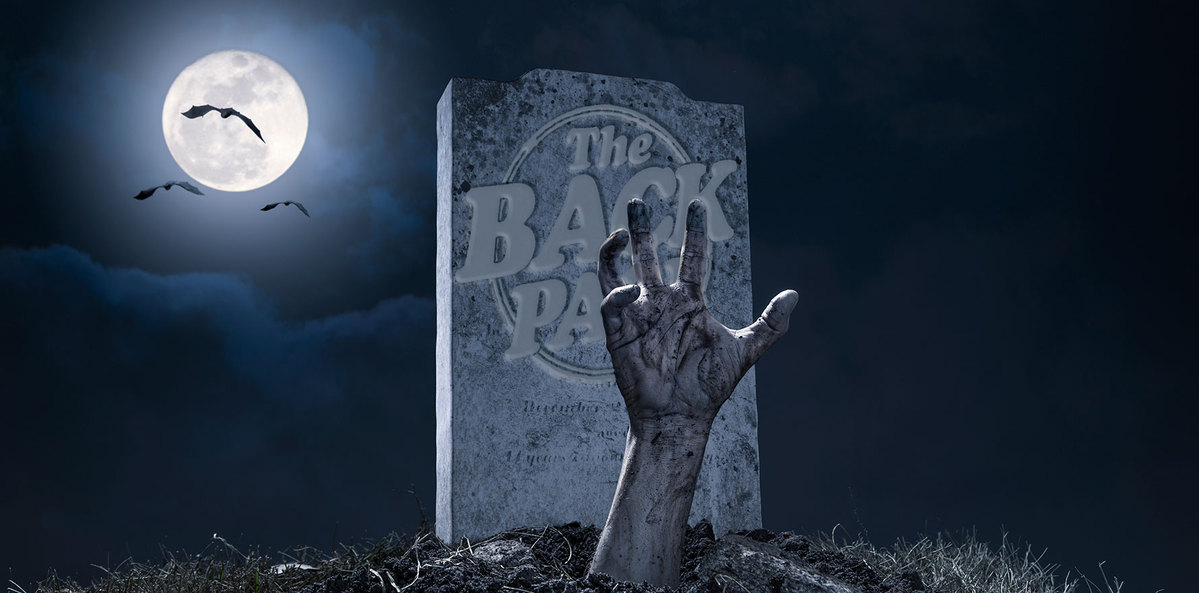Call me a big sook-la, but being trapped in a body that can’t move or communicate seems like a fate worse than death.
When I was an impressionable youngster, many moons ago, I got into a pile of Readers Digests that had been lying around some doctor’s waiting room somewhere.
For those under the age of 50, RD used to come printed in a little A5-sized book and it was full of, shall we say, not particularly well referenced “articles” that were often dramatic tales of survival, mixed with readers stories, humorous anecdotes, memorable quotes and endless offers to join various book and wine clubs that were impossible to escape from.
This particular issue featured a “true” story about a woman who had been buried alive in a box about the size and dimensions of a coffin, who managed to escape over the course of days. It remains, to this day, one of the most nightmare-inducing things I’ve ever read. Matched only by that scene in Kill Bill Vol 2 and that 2010 Ryan Reynolds flick Buried.
It tapped into one of my greatest fears: being unable to make myself understood, or heard. Going into general anaesthetics, for example, my biggest anxiety is that old trope of being awake and feeling everything but not being able to move or speak or otherwise make my distress known.
*shudder*
Now, it turns out, I have good reason to be terrified.
Researchers from Columbia University have identified brain injuries that may cause “hidden consciousness” – a phenomenon in which brain-injured patients are unable to respond to simple commands, making them appear unconscious despite having some level of awareness.
Night. Mare.
“Our study suggests that patients with hidden consciousness can hear and comprehend verbal commands, but they cannot carry out those commands because of injuries in brain circuits that relay instructions from the brain to the muscles,” said lead investigator Associate Professor Jan Claassen.
Hidden consciousness, also known as cognitive motor dissociation, occurs in about 15% to 25% of patients with brain injuries stemming from head trauma, brain haemorrhage or cardiac arrest, according to the researchers.
In earlier research, Claassen and colleagues found that subtle brainwaves detectable with EEG were the strongest predictor of hidden consciousness and eventual recovery for unresponsive brain-injured patients, but the precise pathways in the brain that become disrupted were unknown.
In the new study, they used EEG to examine 107 brain injury patients. The technique can determine when patients are trying, though unable, to respond to a command such as “keep opening and closing your right hand”.
The analysis detected CMD in 21 of the patients.
The researchers then analysed structural MRI scans from all the patients and were able to identify patterns of brain injury shared among patients with CMD and compare them with those without CMD.
The researchers found that all the CMD patients had “intact brain structures related to arousal and command comprehension”, supporting the notion that these patients were hearing and understanding the commands but were unable to carry them out.
“We saw that all of the CMD patients had deficits in brain regions responsible for integrating comprehended motor commands with motor output, preventing CMD patients from acting on verbal commands,” says Claassen.
Where’s the good news in this nightmare scenario, I really need to know?
“Our study shows that it may be possible to screen for hidden consciousness using widely available structural brain imaging, moving the detection of CMD one step closer to general clinical use,” Professor Claassen said.
“Not every critical care unit may have resources and staff that is trained in using EEG to detect hidden consciousness, so MRI may offer a simple way to identify patients who require further screening and diagnosis.”
Oh good.
I’ll be over here rocking in the corner.
Send story tips to penny@medicalrepublic.com.au. Here’s hers: The Premature Burial, by Edgar Allen Poe.


